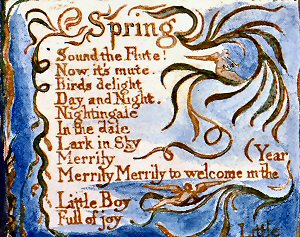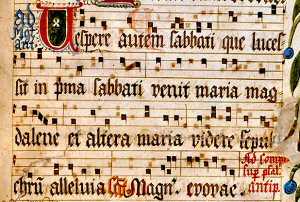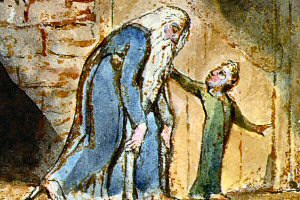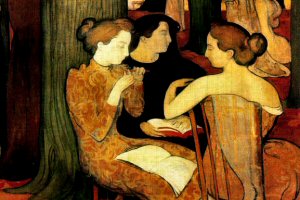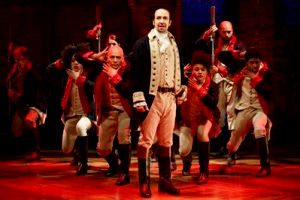2. The Sacred in Music and Text.
The class will survey of some of the ways in which religious poetry has generated accompanying music for more than a
milennium. We will listen to music written to carry texts that form part of the liturgy in Christianity, Judaism, and
Islam. We will hear works on religious themes conceived for performance in the concert hall. And we shall look at a
couple of poets whose religious beliefs produced imagery of astounding intensity, and hear how their words have
inspired composers in their turn.
There is no separate text compilation in this case, as the regular handout contains the two poems to be looked at in
detail. As usual, the full script, videos, and images will be posted immediately after class.
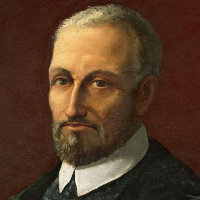 |
Giovanni Pierluigi da Palestrina, 152594. Italian composer.
Born near Rome, he was active in Roman churches almost all his life, first as chorister and then as choirmaster. His large output was mainly of sacred music (for example, 105 masses) though he also wrote secular madrigals. His multi-voice contrapuntal style is considered the culmination of renaissance polyphony.
|
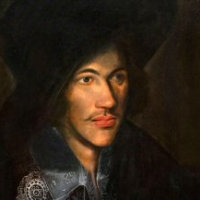 |
John Donne, 15721631. English poet and cleric.
Though classed with the Metaphysical Poets of the early 17th century, he had an immense range, from erotic to sacred, characterized by an extraordinary intensity. He took holy orders later in life, and was appointed Dean of St Paul's Cathedral.
|
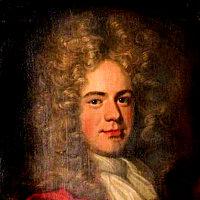 |
Nahum Tate, 16521715. English poet.
Tate is best remembered today as the librettist of Purcell's Dido and Aeneas and the author of "While Shepherds Watched their Flocks by Night." But he was one of the major playwrights of his day, and his Lear is one of the most notable attempts to reshape Shakespeare into a form acceptable on the Restoration stage.
|
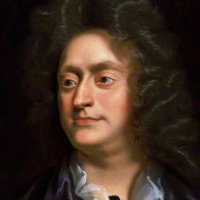 |
Henry Purcell, 165995. English composer.
Not only was Purcell the greatest composer of the Restoration period, writing music for occasions ranging from a royal coronation to an opera to be performed in a girls' school (Dido and Aeneas), he was the last indisputably great English composer for almost three centuries. Among many other qualities, he is renowned for the rhythmic acuity of his settings of English texts.
|
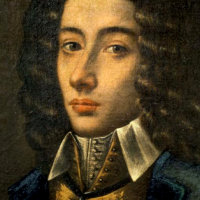 |
Giovanni Battista Pergolesi, 171036. Italian composer.
Although he died at the age of 26, Pergolesi had already written several operas, including the comedy La serva padrona, and a variety of religious music, most notably his Stabat Mater. His work is noted for its melodic grace and sweetness. More music is attributed to him than he could possibly have written!
|
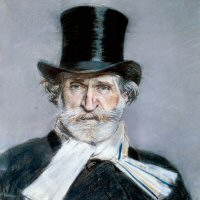 |
Giuseppe Verdi, 18131901. Italian opera composer.
Verdi's two dozen or more operas (depending on how you count them) make him the leading Italian opera composer of his time and among the two or three greatest opera composers ever. After what he called his "years in the galleys," he hit his stride in the early 1850s with the trio of Rigoletto, Il Trovatore, and La Traviata. He intended Aïda to be his last work, but was persaded out of retirement to write his final Shakespearean masterpieces: Otello (1886) and Falstaff (1893).
|
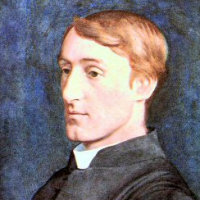 |
Gerard Manley Hopkins, 184489. English poet.
A Jesuit priest, his earlier poetry was concerned with the nature of God as manifested in Nature. Later in his career, he went on to explore the depths of his own soul in bleak depression.
|
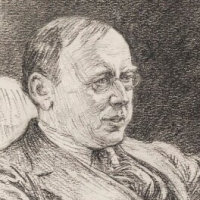 |
Alfred Noyes, 18801958. English poet.
English schoolchildren know of Noyes from his poem "The Highwayman," but he had a varied career that included six volumes of verse, an epic trilogy The Torch Bearers, a play about Robin Hood, and nine years of teaching at Princeton.
|
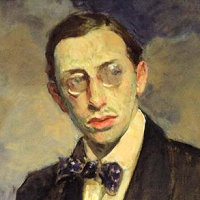 |
Igor Stravinsky, 18821971. Russian-American composer.
Starting as an enfant terrible in Paris with the ballets he wrote for Serge Diaghilev, he gradually pared back his resources, developing a neo-classical style between about 1930 and 1955, but eventually turning his back on tonality.
|
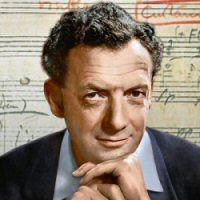 |
Benjamin Britten, 191376. English composer.
Arguably the leading opera composer of the mid-20th century, Britten's major operas have included Peter Grimes (1945), Billy Budd (1951), Gloriana (1953), A Midsummer Night's Dream (1960), and Death in Venice (1973), plus many stage works for smaller forces. He was equally active as a composer of instrumental music and text settings, and latterly as a conductor and accompanist.
|
 |
Steve Reich, 1936 . American composer.
Reich's contribution to the minimalist movement was through his concept of "phase shifting," simple patterns which change perceptibly as one listens. His Music for 18 Musicians (1976) and Tehillim (1981) have become minimalist icons. His Different Trains (1988) for taped voices and string quartet, is a striking musical memorial to victims of the Holocaust.
|
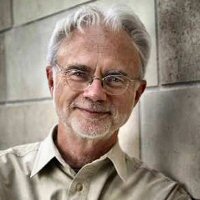 |
John Adams, 1947 . American composer.
One of the founders of musical minimalism, Adams has turned his attention to operatic subjects based on relatively recent history and posing political questions. Examples include Nixon in China (1987), The Death of Klinghoffer (1991), and Doctor Atomic (2005), all of which have been produced at the Met. He has beeen especially associated with the director Peter Sellars, who also compiled the texts for all his operas from 2000 on.
|
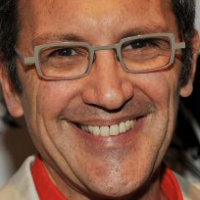 |
Osvaldo Golijov, 1960 . Argentinian composer.
Born of an Eastern European Jewish emigrant family, Golijov has devoted his career to exploring the traditions of his various cultures, in works that cross the normal boundaries between classical, jazz, and folk music of all kinds.
|
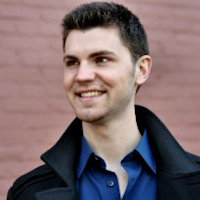 |
Jake Runestad, 1986 . American composer.
As a composition student at the Peabody Conservatory, Runestad wrote in many genres, including opera, but he has gone on to become one of the most successful composers writing for and inspired by the great choral tradition of the American Midwest.
|
























